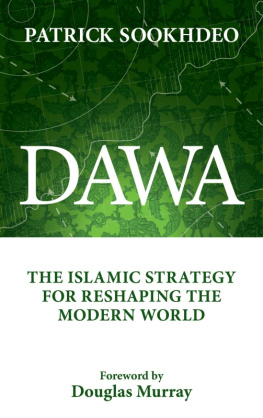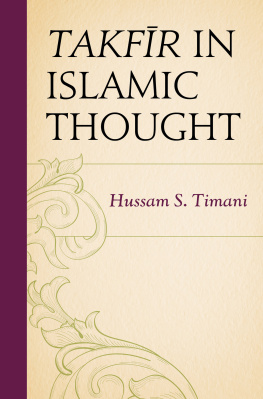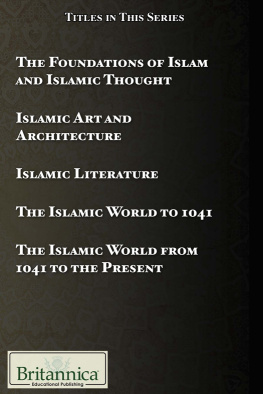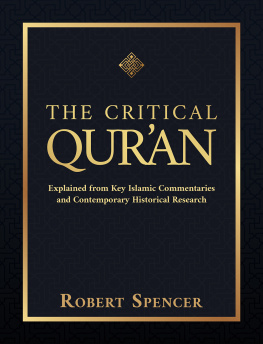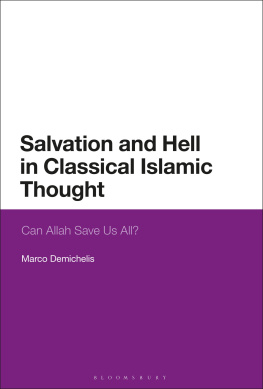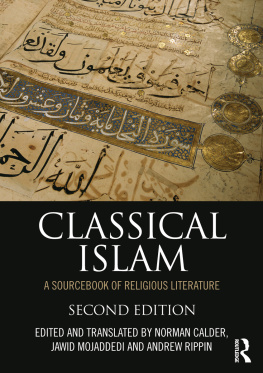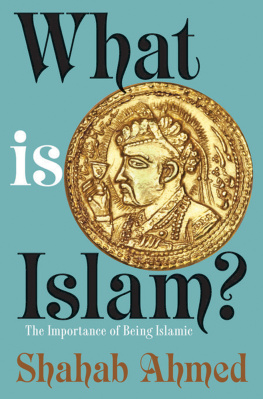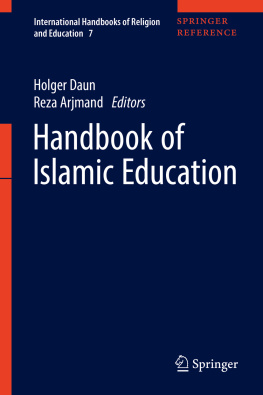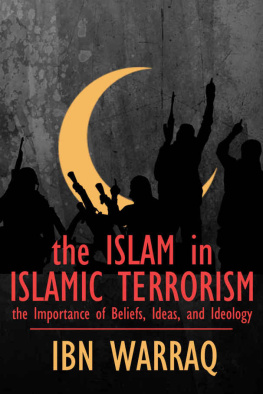

Published in the United States by Isaac Publishing
6729 Curran Street, McLean VA 22101
Copyright 2009 Patrick Sookhdeo
UK edition 2004 Patrick Sookhdeo. Published by Isaac Publishing, Pewsey, UK as Understanding Islamic Terrorism.
All rights reserved. No part of this publication may be reproduced, stored in a retrieval system, or transmitted, in any form or by any means without the prior written permission of the publisher, nor be otherwise circulated in any form of binding or cover other than that in which it is published and without a similar condition being imposed on the subsequent purchaser.
ISBN 978-0-9787141-6-1
ISBN: 9780989290593
Printed in the United States of America
Contents
Foreword
Many books have been published in the past two years purporting to explain the roots of Muslim fundamentalism. Some, like Noam Chomsky, say it is simply a response to American imperialism. Others, following the lead of Samuel Huntington, see it as the result of an inevitable clash between faith-based civilisations. Others again see it as a pathological response to the spread of liberal democratic values having much in common with the mid-20th century aberrations of communism, fascism and nihilism. On this view the blame lies with the failure of liberal civilisation to live up to its own ideals. Hence the Islamist solution is to sweep away the existing order and replace it with Gods rule on earth. But all such reductionist explanations miss the mark unless they cast light on the Muslim tradition of jihad, to which Christianity has no counterpart. Is this to be understood as a holy war of conquest to be pursued until the whole world embraces the Muslim faith, or at least submits to Muslim rule? Or is it more correctly seen as a spiritual struggle against temptation and sin to improve and purify oneself jihad of the heart? Is it true that Mr. bin Ladens 1998 fatwa against the Jews and the Crusaders is regarded by many if not most Muslims as a travesty of their faith? More particularly is suicide bombing rightly seen as a sure route to holy martyrdom or a grotesque distortion of Islam?
Few people are better qualified to interpret the Islamic doctrine of war than the author of this short book. Patrick Sookhdeo comes from a Guyanese background and his knowledge of Islam is derived not only from academic study but also from personal experience. He holds a Ph.D. from London Universitys School of Oriental and African Studies, and is a Visiting Fellow at Cranfield University, Royal Military College of Science. There are few people to be found anywhere in the world with a better understanding in practice of how Islam works. So while this book relies, as it must, on extensive quotations from the Quran and other sources (hadith, Shariah) it is far from being an academic thesis. On the contrary it focuses, quite precisely, on how those sources have led, by means of a logical reasoning process, into an enormously detailed set of rules to regulate every aspect of devotional, family, social, economic, military and political life.
This book falls into four main parts. The first, having introduced the sources and the way in which they are interpreted, sets out the resulting theology of war, peace and the creation of empire. The second deals, in summary outline, with the dramatic expansion and subsequent slow decline of the Muslim world from the seventh century to the present day. The third part deals with the violent sects within Islam, both past and present, the motivation of terrorists and how they are recruited, trained and sent on their deadly missions. The last part deals with the contemporary Muslim debate and offers ten options for dealing with the problem of Islamist terrorism.
This book offers no easy solutions. One has to grapple with the texts, whose meaning is by no means always obvious; and where they oppose each other either reconcile them or live with the contradiction. One has to face the facts of faith and practice which are sometimes ugly and often very alien to our own. One has to admit to glaring mistakes made by the West in trying to cope with Islam over the past thirteen hundred years. Above all one has to think clearly and dispassionately how best to cope with Islamic fundamentalism as we find it today. As Patrick Sookhdeo says A spider weaves its web in secret in a dark corner, and cannot be tackled until a light is shone upon it. This book shines a clear light into many corners of this convoluted subject. It is an indispensable primer for all who seek to respond to the Islamic doctrine of war or even simply to understand it better.
General Sir Hugh Beach GBE, KCB, MC
Hugh Beach spent forty years in the Royal Engineers. His last appointment was as Master General of the Ordnance (Army Board Member for Procurement). After leaving active service he was Warden of St Georges House in Windsor Castle for five years, and in later years he chaired the Boards of Management of both Church Army and SPCK.
The jihad is the Islamic bellum justum and may be regarded as the very basis of Islams relationships with other nations.
Majid Khadduri
Jihad is the signature tune of Islamic history.
M.J. Akbar
Introduction: The Interpretation of Sources | |
Is the cup half full of water, or is it half empty? Human interpretation of basic data can be influenced by many different factors, exterior and interior, conscious and subconscious. This is particularly true in the religious arena, where basic sources are liable to be given a whole spectrum of interpretations, for ultimately there is no way of proving or disproving any particular believers understanding of a religious text.
There is also plenty of scope for contrasting interpretations in many other areas of life. Americas war on terror, following the tragic events of September 11th 2001, is considered a war on Islam by many Muslims despite repeated denials by western leaders.
The theme of this book is the doctrine of war in Islam, a subject which is surrounded by much confusion. What we can be sure of is that a discussion of war features overtly in Islamic theology and thought from its earliest days until now. We can also be sure that there are a multitude of different interpretations which are sincerely held and practised by different individual Muslims.
An example of difference in interpretation can be clearly seen in the varying understandings of the word jihad (literally striving). For some Muslims this means military war to spread Islam as a religious and political system jihad of the sword. For others it is a spiritual struggle against temptation and sin to improve and purify oneself jihad of the heart. Intermediate are two other possibilities jihad of the tongue and of the hands, aimed at correcting wrongs and supporting what is right.
Although Islamist terrorists who are included in those who consider jihad to be military war are few in number, they should not necessarily be considered a marginalized fringe group rejected by the mainstream of Islamic society as not real Muslims. Their guiding principles are not a modern aberration of some undeniably peaceful true Islam but have deep roots in Islamic history and theology. Such terrorists are simply following a particular interpretation of the sources of Islam. They have selected and prioritised certain aspects and texts of Islamic source material. Other interpretations take the same source material and come to a different conclusion. Those who deny the validity of the terrorists interpretation are usually very liberal Muslims, whose own interpretations of Islam are unacceptable to the majority. One such example is Bassam Tibi, Professor of International Relations at the University of Gttingen, Germany and formerly Bosch Fellow and Research Associate at Harvard University, who states categorically: The terrorism of Islamic fundamentalists is not a jihad in the authentic tradition even though they conceive of their actions as a jihad. It should be noted that others may make similar public denials not through conviction but for tactical reasons.
Next page

